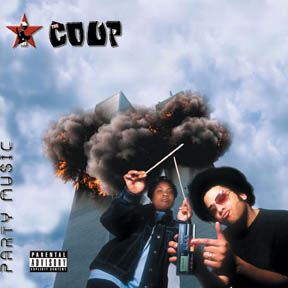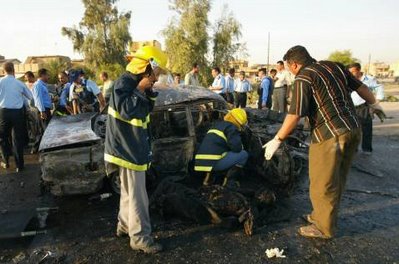9/11, 7/7 and inquiry fatigue.
 Peter Tatchell, for reasons unknown, has brought up yet again the supposed unanswered questions surrounding the 9/11 attacks. Sunny mentions, quite reasonably, that to even do this opens you up to the accusation of being a conspiracy theorist, but while true, it's not really much excuse for just giving the tin-foil hat brigade yet another excuse to rear their ugly heads with their delusional ravings of how it was either a controlled demolition, a missile that hit the Pentagon, or even in fact a projected hologram, and err, didn't really happen at all.
Peter Tatchell, for reasons unknown, has brought up yet again the supposed unanswered questions surrounding the 9/11 attacks. Sunny mentions, quite reasonably, that to even do this opens you up to the accusation of being a conspiracy theorist, but while true, it's not really much excuse for just giving the tin-foil hat brigade yet another excuse to rear their ugly heads with their delusional ravings of how it was either a controlled demolition, a missile that hit the Pentagon, or even in fact a projected hologram, and err, didn't really happen at all.Even though some questions do remain unanswered about 9/11, the inquiries into what happened that day have been far more exhaustive than anything we've seen so far into 7/7. We know exactly who did it, how they did it, where they lived previously and their justifications for doing so. The main conspirator that plotted the attacks has been caught. al-Qaida, unlike over 7/7, 21/7 or the Madrid bombings, has claimed responsibility and only yesterday released the latest videotape containing one of the hijackers' living will. What we don't know is whether the attacks could have been prevented had either the Bush administration been more focused on the terrorist threat or if the warnings of the FBI and CIA had been acted upon.
More to the point, the fallout from 9/11 is now much more important than the attacks themselves were, and the continuing questions about them are. They happened; there's nothing we can do about that now, except learn from the lessons they've given. You don't have to be a cynical bastard to note that the Bush administration chose this week for the report to the Senate and Congress on the Iraqi surge: what better time to accuse those of wanting to end the nightmare in Iraq of being unpatriotic? The Bush line on Iraq is that they're fighting the terrorists there so that they don't have to do so in America. It's a laughable argument based on sophistry, but in a nation where 33% still believe Saddam Hussein was involved in 9/11, it's one that still holds some weight. Also prevalent in the report by Petraeus were yet more accusations about Iran's involvement, while Rice today scaremongered about Ahmadinejad's pledge to fill the vacuum. The announcement that an American base, you know, the ones that are all going to be dismantled once the US withdraws, is going to be built within 4 miles of the Iranian border just shows where all that is inexorably leading to: another confrontation, more needless deaths, and the threat of yet more collateral damage through blowback.
As Simon Jenkins points out though, at least American democracy has somewhat attempted to hold those in charge of the Iraq war to account. Back here the contempt with which the opposing view has been held both by Tony Blair and now Gordon Brown has meant that we haven't even had the slightest voice in determining how much longer our own troops stay in the country. An attempt to hold an inquiry was voted down by Labour backbenchers too cowardly to listen to the overwhelming view of the public who have long wanted to know how we were dragged into this mess in the first place. Meanwhile, the families and relatives of those caught up in 7/7 are reduced to resorting to legal action to obtain a full independent inquiry into the events of that day and the acquaintances that the bombers had with other now convicted terrorist plotters. Compared to the inquiries and inquest into 9/11, we know next to nothing about where they came from, where they trained and who they had contact with. They deserve so much better.
Labels: 7/7, 9/11, conspiracy theorists, Iran, Iraq disaster, Iraqi surge, Peter Tatchell


